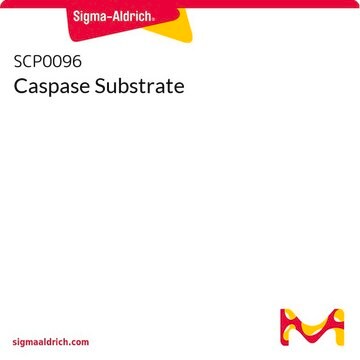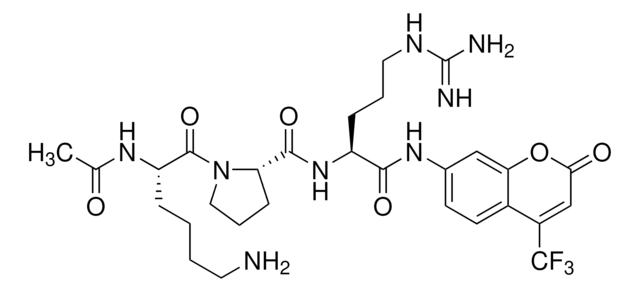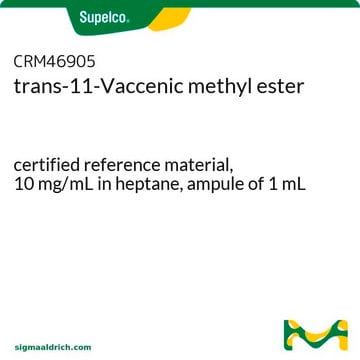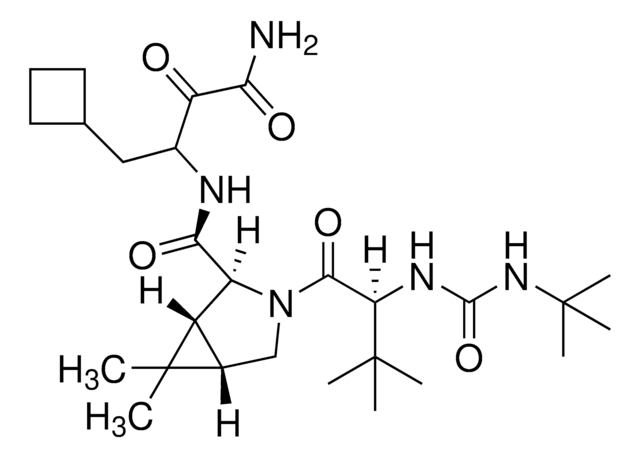SML0547
Loteprednol Etabonate
≥98% (HPLC)
Synonym(s):
(11b,17a)-17-[(Ethoxycarbonyl)oxy]-11-hydroxy-3-oxo-Androsta-1,4-diene-17-carboxylic acid chloromethyl ester, CDDD 5604, HGP 1, P 5604
About This Item
Recommended Products
Assay
≥98% (HPLC)
form
powder
color
white to beige
solubility
DMSO: 5 mg/mL, clear (warmed)
storage temp.
−20°C
SMILES string
CCOC(=O)O[C@@]1(CC[C@H]2[C@@H]3CCC4=CC(=O)C=C[C@]4(C)[C@H]3[C@@H](O)C[C@]12C)C(=O)OCCl
InChI
1S/C24H31ClO7/c1-4-30-21(29)32-24(20(28)31-13-25)10-8-17-16-6-5-14-11-15(26)7-9-22(14,2)19(16)18(27)12-23(17,24)3/h7,9,11,16-19,27H,4-6,8,10,12-13H2,1-3H3/t16-,17-,18-,19+,22-,23-,24-/m0/s1
InChI key
DMKSVUSAATWOCU-HROMYWEYSA-N
Gene Information
human ... NR3C1(2908)
Biochem/physiol Actions
Features and Benefits
Storage Class Code
11 - Combustible Solids
WGK
WGK 3
Flash Point(F)
Not applicable
Flash Point(C)
Not applicable
Certificates of Analysis (COA)
Search for Certificates of Analysis (COA) by entering the products Lot/Batch Number. Lot and Batch Numbers can be found on a product’s label following the words ‘Lot’ or ‘Batch’.
Already Own This Product?
Find documentation for the products that you have recently purchased in the Document Library.
Articles
We offers many products related to Nuclear Receptors (Steroids) for your research needs.
We offers many products related to Nuclear Receptors (Steroids) for your research needs.
We offers many products related to Nuclear Receptors (Steroids) for your research needs.
We offers many products related to Nuclear Receptors (Steroids) for your research needs.
Our team of scientists has experience in all areas of research including Life Science, Material Science, Chemical Synthesis, Chromatography, Analytical and many others.
Contact Technical Service








